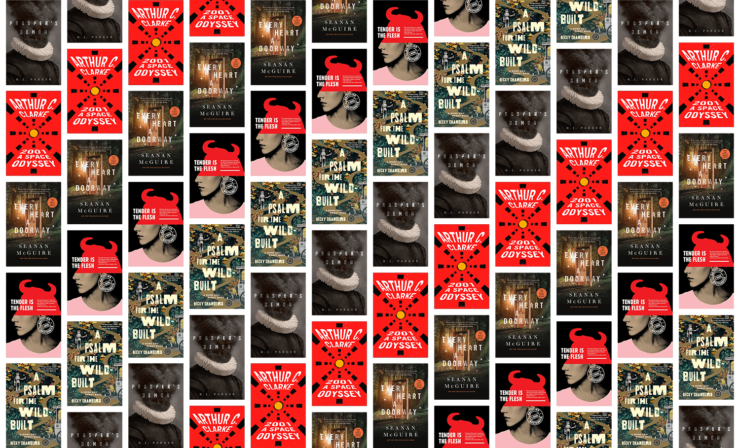I read a lot of epic fantasy. The bigger the better. When it comes to reading enjoyment, it’s hard to beat a sweeping, 800-plus page story—especially if it’s part of a massive series.
Lately, though, I’ve started slotting smaller books into my reading schedule. It helps me explore a more diverse array of voices and approach my always-too-high annual reading goal… but mostly, these comparatively tiny tomes have shown me how big ideas can fill up a small space and still feel impactful, and deeply meaningful.
I’ve encountered numerous worthwhile books with shorter page counts in recent years, and they frequently grapple with huge concepts despite their size. Hyper-focused narratives expanding on a single unifying idea have as much (if not more) to offer as SFF’s biggest, baddest tomes.
Need a break from big books? Here are five small books (under 300 pages) that pack a punch with big ideas.
Prosper’s Demon by K.J. Parker: On the value of art and the influence of creators
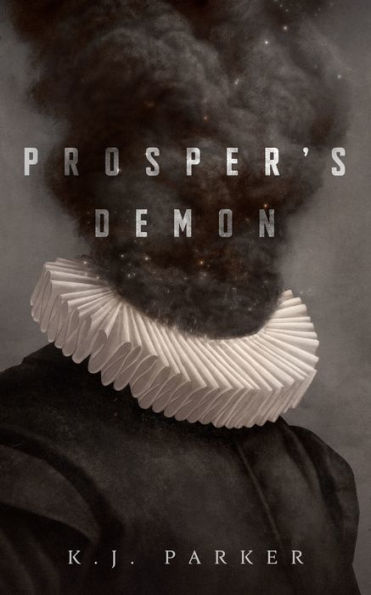
Does art have intrinsic value? Can its worth to society change based on the deeds of its creator?
Prosper’s Demon, a delightfully sardonic, compact yarn, is ready and willing to ponder these questions within its ~100 pages. The nameless exorcist serves as a de facto protagonist, though he’s far from admirable. He hates his job, but someone’s gotta do it. He causes immense pain to the demons he exorcises and the humans hosting them. He doesn’t want to hurt people, but it’s an unfortunate side effect of his methods. His thankless work drives him to a solitary existence laced with sarcasm and terse exchanges with the foul demonic creatures he encounters.
Prosper of Schanz presents our protagonist with quite the dilemma. The man is a magnate, spearheading scientific advances and artistic feats beyond the world’s wildest dreams. He wants to raise a philosopher-king based on pure, moral principles. It’s a real shame Prosper is possessed, and that the demon is behind some of his greatest ideas and accomplishments.
The exorcist becomes torn between duty and appreciation for the demon’s work. The creature is a hellish creation and the exorcist knows only bad can come from letting it flourish in Prosper’s psyche.
By default, the exorcist has the fate of the world’s greatest advancements in the palm of his hand, and he must decide whether to eliminate the demon and risk killing Prosper in the process. Prosper’s Demon manages to balance its witty take on demonic possession with big moral questions about the nature of art and progress. It’s bite-sized, sure, but it’s utterly fulfilling nonetheless.
A Psalm for the Wild-Built by Becky Chambers: On following your dreams and exploring the unknown
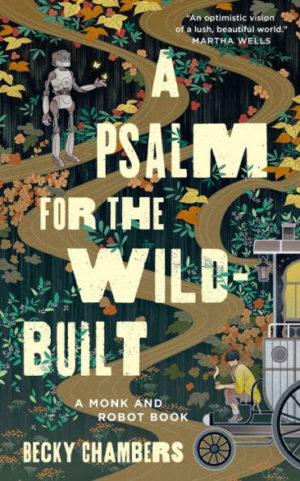
Living on a small moon, Dex works for a corporation in a big city and begins to feel bogged down by the day-in, day-out of their routine. Years ago, the robots and humans agreed to separate, with the mechanical beings headed to the uninhabited side of the moon, the Wilds. Now, humans live in relative peace, but Dex feels like they can do something better, something more.
So Dex quits and buys a wagon. They travel the human lands serving people tea and listening to their stories. They help solve people’s problems, even if it’s just by lending an ear.
Then, Dex starts to get the itch to explore further. They cross into the wilds, where they encounter Mosscap, an endlessly curious and kindhearted robot who wants to learn everything it can about humans.
The book resonated with me—Dex’s story mirrors my journey in many ways, and I imagine the same would be true for other readers. Unhappy with their work and unsure of what’s next, Dex takes a leap. They move forward without knowing what lies ahead. If you’ve ever quit a job or sought a new opportunity in the hopes of a better life, you’ve lived Dex’s experience. Then, Dex realizes they still want more. The uncertainty accompanying any life decision can lead to a feeling of unease. Following your dreams means giving into the future, which is never set in stone.
A Psalm for the Wild-Built offers a thoughtful, heartfelt exploration of Dex’s journey of self-discovery within its ~160 pages. And the upcoming sequel, A Prayer for the Crown-Shy, delves even further into those crucial concepts and questions.
Every Heart a Doorway by Seanan McGuire: On belonging and being misunderstood
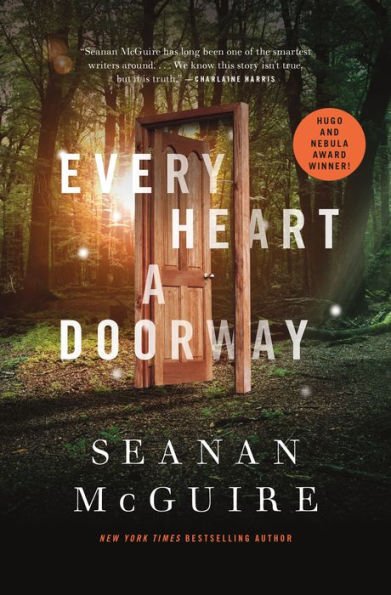
Seanan McGuire’s Wayward Children series keeps growing and growing. Each book focuses on a child who ventured to a fantastical portal world where they felt like they truly belonged, only to be whisked back into the “real” world (our world). Every Heart a Doorway launches the series with the story of Nancy Whitman, a girl who returns from the Halls of the Dead to the fast-paced, loud, and chaotic real world.
Eleanor West welcomes Nancy into her boarding school, offering a loving home and friends who can relate, on some level, to her experience.
Every Heart A Doorway might seem light and unassuming at first, but McGuire quickly reveals the darkness that stems from feeling like you don’t belong. The heartache these children feel can lead to terrible deeds and decisions that shake the foundation of what Eleanor West has built. Nancy finds herself at the center of a murder mystery, and having returned from the land of the dead, suspicion comes her way. Nancy must navigate her new home, her grief at losing her old one, and the mistrustful glares of her new classmates who believe she is killing other students.
The entire Wayward Children series (seven novellas to date, with more on the way) dives into the concept of belonging without shying away from the darker experiences of alienation and isolation. The myriad protagonists have been mistreated, misunderstood, bullied, or even abused for who they are, leading them to their more accepting portal worlds. Everyone fits in somewhere, and even the scary-on-the-surface portal lands can provide McGuire’s characters with the sense of belonging they so desperately need.
Tender Is the Flesh by Agustina Bazterrica: On humanity’s response to crisis
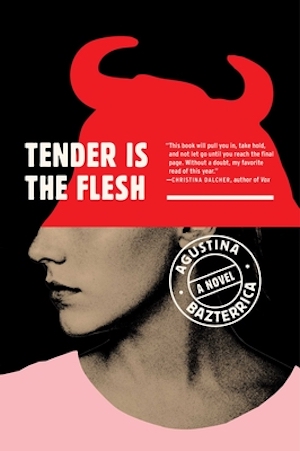
This one may hit close to home, so proceed with caution. But also note that it is one hundred percent worth the read.
In Agustina Bazterrica’s Tender Is the Flesh, a virus decimates the animal population of the earth, rendering almost all creatures inedible. This leads to “The Transition,” which legalizes cannibalism and kickstarts an industry to raise humans for consumption.
Marcos works in a “special meat” plant, as the book dubs them, and a wealthy client gifts him a “head,” a human woman raised to be eaten. Marcos goes through the motions, questioning whether the world’s governments fabricated the virus to cull the population and/or make a profit. He grows attached to the “head” he now harbors. His father withers away in a home, and his sister refuses to offer any help in caring for him.
Marcos’ world unravels around him, and he trudges through a routine to keep his composure. Tender Is the Flesh hits close to home for reasons I hope are tragically obvious. It tackles humanity’s collective response to a world-shaking virus head-on, grappling with the grim issues that arise from a worldwide crisis. It’s an incredibly prescient novella, originally published in 2017.
You’ve probably gathered that Tender Is The Flesh isn’t for the faint of heart. You have to be in the right mindset to read it—understand this, go in knowing it’s heavy and hard, and it’s easily a five-star read. And at 220-ish pages, it’s as brief as it is devastating.
2001: A Space Odyssey by Arthur C. Clarke: On how very, very small we are in the grand scheme of things
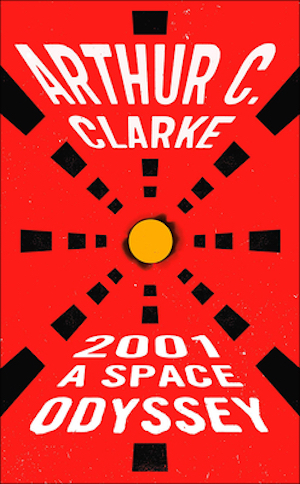
Whereas my previous pick captures a specific moment in time, Arthur C. Clarke’s 2001: A Space Odyssey highlights thousands upon thousands of years of human development in the span of 300 pages.
2001 begins with humanity’s ancestors, more ape than men, avoiding predators and foraging for food. When the mysterious monolith appears and inspires the creatures to throw and bash and hunt, they enter a new era of evolution.
Fast forward to modern-ish times, and humans have made it to the moon. Travel to our lunar sibling isn’t quite commonplace, but it’s doable for the rich. Explorers discover another monolith buried under the moon’s surface, and when they uncover it, a signal broadcasts toward Saturn.
In 2001, astronauts Dave Bowman and Frank Poole—along with three crew members suspended in cryo-sleep and the sentient computer HAL 9000—board the spaceship Discovery One bound for Saturn in the hopes of finding another monolith…and answers about its origin.
From its opening lines all the way through its mind-boggling climax, 2001: A Space Odyssey ruminates on the nature of humanity. Who are we, and what is our purpose? Do we even have a purpose? The novel explores possible answers while leaving a great deal up to interpretation.
To date, I haven’t read a sci-fi story that more effectively drives home how small and insignificant we are on the universal stage. 2001: A Space Odyssey welcomes the questions and basks in the uncertainty that pervades our existence. But don’t worry, there’s still a dash of hope to be found in the book’s final moments.
***
What are your favorite small books that offer big ideas and explore weighty questions? Let me know in the comments!
Cole Rush writes words. A lot of them. For the most part, you can find those words at The Quill To Live or on Twitter @ColeRush1. He voraciously reads epic fantasy and science-fiction, seeking out stories of gargantuan proportions and devouring them with a bookwormish fervor. His favorite books are: The Divine Cities Series by Robert Jackson Bennett, The Long Way To A Small, Angry Planet by Becky Chambers, and The House in the Cerulean Sea by TJ Klune.










